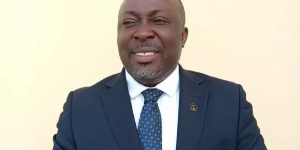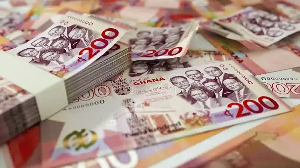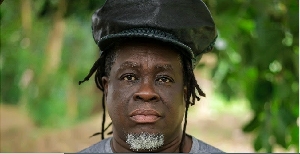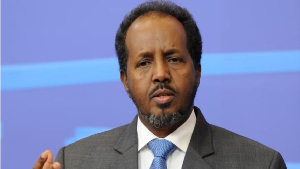‘Plain, Plain talk’ on Removing the Road blocks to Ghana’s Accelerated Development.
Let me begin by saying that this is not a research paper. This is an opinion piece and therefore subject to scrutiny. This author would strongly welcome counter opinions, comments and rejoinders, to encourage the conversation on identifying blockbusters that would pierce through the roadblocks to Ghana’s fast track development. Let’s begin with Vision. How many of you are clear on the type of society we are striving for? Yes, we all want a good per capita income and we all want to live in a democratic society, but have any of our political parties clearly defined the path that we are following? Are we to assume that the NPP want’s us to be a capitalist democracy like America and the left leaning parties (CPP and PNC) want a socialist democracy like the Scandinavian countries? What about the NDC? Do they want to create a benevolent dictatorship like China with a Chairman Mao figure like you know who? (just kidding)
I don’t have a presidential candidate and I don’t have all the information to clearly support a particular party at present but for the sake of this argument, I have to mention that the only authentically Ghana-made vision I have read about so far is Akuffo-Addo’s concept of indigenous capitalism. I haven’t heard much of it lately and I haven’t subjected it to scrutiny yet to make a judgment on it but I have to applaud the ‘novelty’ of it (it is not a new concept but he has put a Ghanaian spin on it). Don’t you all think that our presidential aspirants should define clearly their vision for Ghana? Proverbs 28:19 warns that for “lack of vision, my people perish”.
What is our vision for Ghana? How do we want to look like when we grow-up? Will the Black Star provide the first authentic model of African democracy inculcating elements of our traditional system? I am waiting for an answer.
Next stop, Leadership! Post the founding fathers, Africa’s leadership has become synonymous with dictatorship and kleptocracy. It looks like NEPAD is helping us shed our dictatorship past. How about the kleptocratic past? What drives that kleptocracy i.e. theft and corruption? The cost of winning power is immense (how much is the NPP asking its presidential candidates to pay?). How can we reduce the investment required to enter office to eliminate the incentive for graft? How do we minimize the expectations of our relatives that a higher office in government, or the civil service, or the private sector for that matter, is not a ticket to wealth? In my opinion, the costs of running for office, the pressure from expectations, and of course, the childish desire to show-off, are the crucial factors that fuel corruption in African societies. Subconsciously, we don’t expect the ‘big man or woman’ to be poor even when they can’t make ends meet on their relatively generous salaries, do we? (wink, wink). Isn’t it time to be honest and change our perceptions?
Traditionally, government jobs are not known for the best salaries. They are however known for their generous benefits. Instead of charging high fees to allow people to run for office, the generous benefits and the prestige that comes with office, not to mention legitimate influence, must be promoted as worthy goals to pursue and corruption must be downplayed. This can be achieved by indiscriminate persecution of corrupt public officials. Public office, like our traditional offices (elders and chiefs), must be promoted as an honorable, selfless, social status that calls for respect and living above reproach. The press can foster this change in perception through responsible journalism, by exposing behavior that falls short of the high standards of public office, and promoting good behavior. How to empower the third and fourth estates of government, the judicial service and the press respectively to help achieve these ‘lofty ideals’, brings me to my third point – rule of law.
With freedom and democracy, comes the rule of law. We did not mess with the taboos in our traditional systems but today we trivialize the law. Most people don’t even know the laws and would subject it to their whims in a blink of an eye. Ente dien, mmra nti yen da (Twi phrase) – translated as “so what, who cares about the law” is the popular sentiment. Rule of Law must start at the top. When the popular perception is that the people in power respect the law, the masses will follow. Our chiefs were the embodiment of our norms and mores. We must enshrine our values in the law. The legislators who enjoy the perks of office must make sure that the laws of the land reflect our values and aspirations. That is what makes government work in the developed economies.
In sum, to fast track Ghana’s development and for Ghana to live up to its destiny as the black star of Africa, we need exemplary leaders with well defined visions, who pursue public office for the honor and not the material gain it brings them, and we need laws that enshrine our values just as our taboos did in traditional society. If the public is educated about these laws and we defend and uphold them like we did our taboos, we will be on the path to a true African model of democracy. Visionary and accountable leadership supported by a free society that upholds its laws (or norms and taboos) is what leads societies to greatness.
Nana, a Legon (Okponglo-class of ’90) alumnus, currently works in higher education in North America. He previously worked in secondary education in Britain and Africa. Nana can be reached at knowusu@yahoo.com

Views expressed by the author(s) do not necessarily reflect those of GhanaHomePage.














